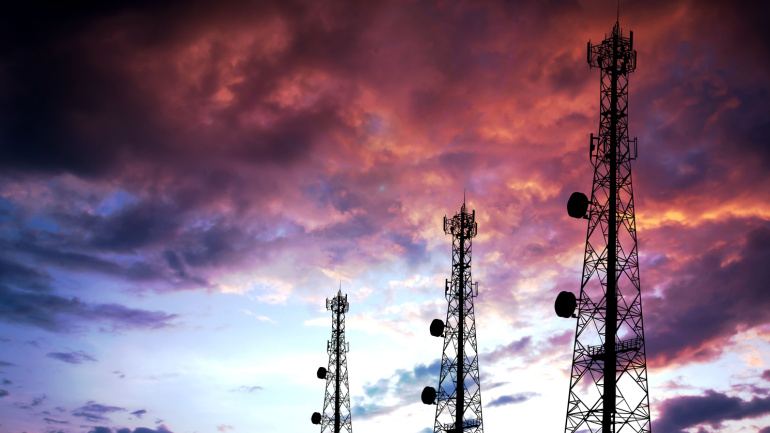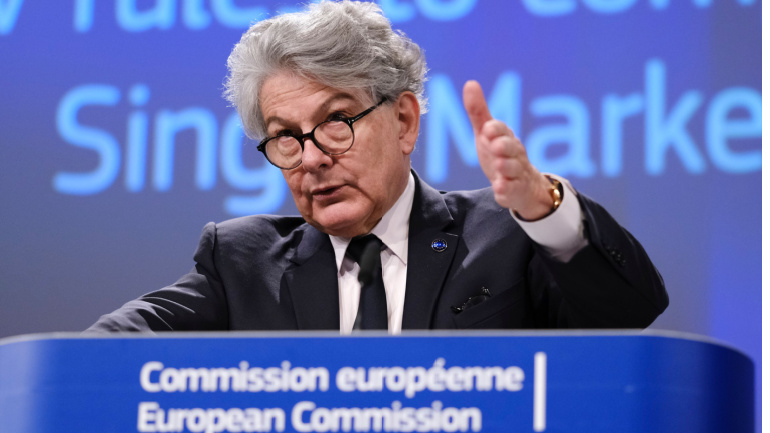First Orion introduces SENTRY™, combatting fraudulent calls and preserving brand integrity. CO-OP KINKI enhances customer security with Vonage’s 2FA technology for online shopping. Cloud communications market soars, set to reach $180.7 billion by 2027. T-Mobile shifts users to pricier plans, raising concerns over rate plan commitments.
Anticipation builds as the international telecommunication industry readies for the 2023 Global Telecoms Awards, offering a glimpse of the brightest advancements in the sector. This year’s fierce competition promises a thrilling revelation on November 30th, stretching from top-shelf 5G innovations to groundbreaking strides in AI and sustainable telecom solutions. Coinciding with the awards, the Future Vision Executive Summit promises to stimulate discussion on pressing telecom industry topics. Don’t miss out, the future of telecommunications unfolds here.
Thierry Breton, Internal Market commissioner of the European Commission, is advocating for a unified European telecoms market, anticipating advancements in growth, innovation, and swift adaptability to emerging technologies. Arguing against the current market fragmentation, he believes regulatory easing on issues like spectrum acquisition could invite investors to support future networks. Simultaneously, telecom operators suggest cross-border consolidation as a potential path when local financial conditions improve.
As the Competition and Markets Authority gears up for an official investigation about the planned merger between Vodafone and Three, concerns such as reduced consumer choices, price hikes, and changing market dynamics are cropping up. Simultaneously, anticipation builds over potential improvements and expansive opportunities the merger might usher in for the UK’s mobile network scene.
Five nations have formed a global alliance, ambitiously named the Global Coalition on Telecommunications (GCOT), a promising step towards international cooperation in the telecommunication arena. Set to modernize Open RAN, enhance 6G, and resolve security issues linked to China, this consolidates the efforts of five major entities across UK, Australia, Canada, Japan, and the U.S. The coalition aims to better integrate policy matters and drive growth within the industry. However, uncertainty looms over the form this alliance will take in future, prompting intense interest within the telecom sector.
Google’s Pixel 8 promises a remarkable seven years of updates, outdoing Samsung. The Pixel 8 Pro boasts advanced computational photography and an FDA-approved body temperature sensor. Microsoft introduces a faster, sleeker Teams app with AI-powered Copilot. Truecaller strengthens fraud detection with Unoideo Technologies acquisition. Snom Americas collaborates with Zoom to enhance the reseller channel with the Snom M500 DECT phone system, offering wireless mobility and crystal-clear audio.
Luxembourg’s Prime Minister and SK Telecom have inked an agreement, initiating a strategic collaboration to advance the quantum tech ecosystem. Connexion between this MoU and an earlier South Korean – Luxembourg agreement hints towards a momentous ‘quantum Internet of Things’. Meanwhile, telecom operators globally look to leverage quantum technology’s disruptive potential towards traditional data security protocols. SK Telecom, recognized for its pioneering quantum work, also boosts its pursuit in the AI realm, underlined by a significant investment in AI firms.
As Vocus’ exclusive negotiation period with TPG Telecom for the proposed fiber business acquisition concludes, talks remain in motion. Delays in due diligence hint at finance-related stumbling blocks, though TPG stays open to other potential bargains, igniting a scenario of anticipation and suspense within the telecom domain.
Generative AI’s capacity to curate fresh content is piquing interest within the telecommunications domain with predictions of significant growth. A recent Altman Solon survey revealed that nearly half of the experts in this field are gearing towards adopting this technology within the forthcoming two years. Telecommunications companies are seen to utilize AI power initially to refine customer experiences. Alterations of these AI models to align with specific objectives and eventually, creating new industry-focused models are the subsequent phases. However, data protection concerns circulate around its adoption. Thus, an intricate balance must be reached in refining AI applications and ensuring data safety.
The telecommunications realm of Sweden and Denmark is on the brink of a substantial transformation, with Stonepeak’s impending acquisition of a 49% stake in Cellnex Nordics. Despite alterations in ownership, operational management remains with Cellnex. However, the agreement awaits regulatory approval, with full expectancy of completion by Q1 2024. The funding injection is anticipated to bolster Cellnex’s debt reduction strategy, aiming for a coveted S&P investment grade credit rating. Both parties share a positive outlook, viewing this step as critical in Cellnex’s broader shift towards consolidation.













